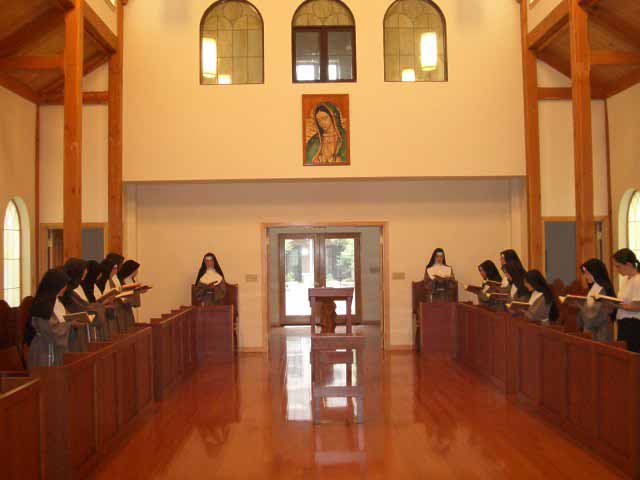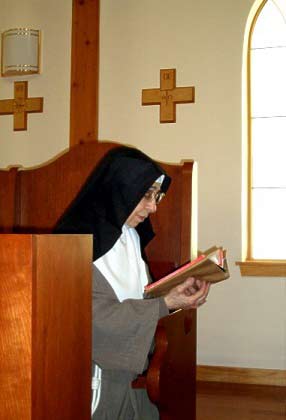|
|
"Seven times a day I praise you!"exclaims the author of Psalm 119. We too, following the ancient monastic tradition, praise the Lord seven times during the day and the night as we sing and chant the Church's Liturgy of the Hours. Our prayer before the Eucharistic Lord overflows into the labor of life as we accomplish all the tasks of maintaining a monastery and attending to the needs of our Sisters. Then at the appointed time, Sister Sacristan rings the bell to call us once more to the next period of expressed community prayer. And so the monastic daily rhythm unfolds: "Ora et Labora" - prayer and work, prayer and work, prayer that leads to service, work that flowers into love. |
||

|
||
| Christ, in the Holy Spirit and together with "the heavenly assembly of the first-born," is at every moment celebrating the liturgy before the Father. It is this liturgy, this unceasing song of praise, that shapes history and gives vitality to the Church in our world; it is constantly at work and is offered to us. "Let all who are thirsty come!" Our celebrations are moments in which "all who want it may have the water of life, and have it free." | ||

|
Wherever
the Church celebrates the liturgy, there the Spirit of Christ's body
is. Wherever-- within the towering arches of Chartres, the wide nave
of a magnificent abbey, or the small choir of enclosed nuns, it is
the same: the Bride rejoicing in her Lord and God, bathed in the
streams of the eternal celebration of the heavenly liturgy, the
center from which the light of love and life radiates into our
world. The contemplative is called continually to a vigil, waiting for the Lord, preparing the way for him in her heart, mirroring within her depths the likeness of him who is coming. |
|
